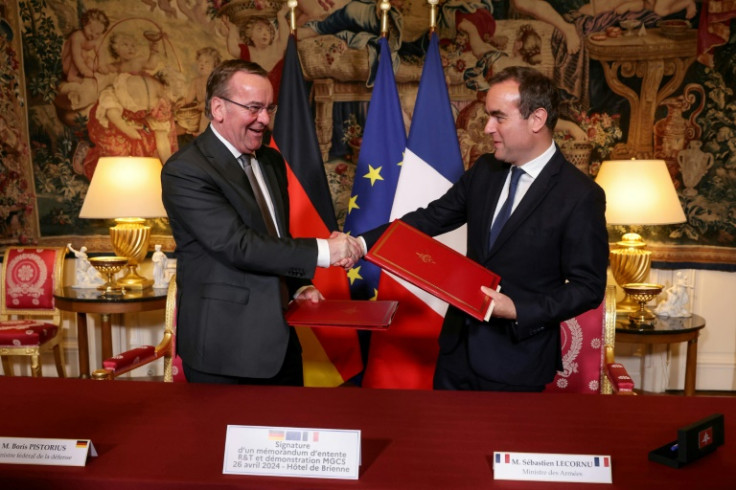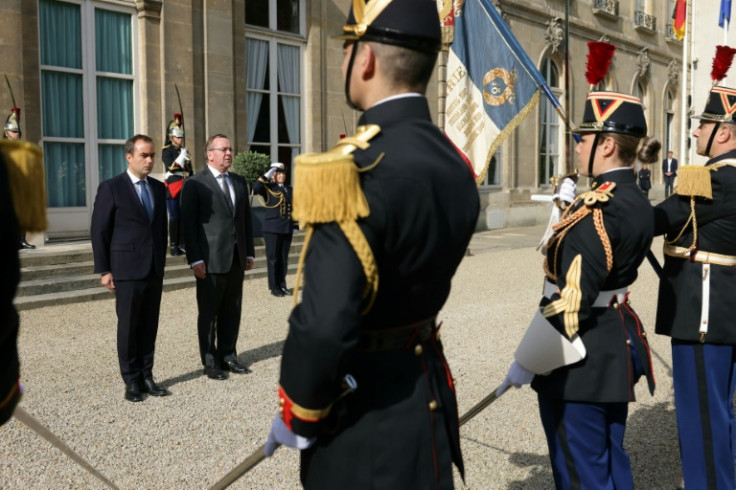
France and Germany on Friday firmed up plans to jointly develop a next-generation battle tank equipped with artificial intelligence and laser technology, billed as a game changer in modern warfare.
During a ceremony in Paris, the defence ministers of France and Germany, Sebastien Lecornu and Boris Pistorius, signed a memorandum of understanding that seals a 50-50 split in the industrial production of an advanced battle tank dubbed the Main Ground Combat System (MGCS).
The push to move ahead with the project comes as Berlin and Paris are eager to show unity after a series of spats on how to support Ukraine in its war against Russia.
In 2017, Germany and France agreed to jointly develop the next-generation battle tank as a successor to the French Leclerc and German Leopard tanks, starting in 2040.
But the tank plans have faced delays amid rivalry between French and German industrial companies, and different priorities in Berlin and Paris.
In March, the two ministers announced in Berlin they had managed to unblock the stalled project by agreeing how to split the work between the two countries.
"Today's signing is a real milestone", Pistorius told reporters.
"This is not the tank of the future but the future of the tank," Lecornu added.
The tank system will have cutting-edge technology that could usher in a new era in land warfare.
The MGCS will consist not just of one armoured fighting vehicle but a system of manned and unmanned vehicles. It will include drones to protect the tank as well as the use of artificial intelligence and laser technology.
Funded in equal parts by Paris and Berlin and run under German management, the project was originally led by defence industry firm KNDS, a tie-up between Nexter from France and Germany's KMW.
But the delicate balance was upset when Germany's Rheinmetall joined the project in 2019.
Friday's agreement designates manufacturers to be responsible for key components of the tank systems including platforms, turrets and guns.
Talks are beginning with manufacturers to develop an initial demonstrator, a sort of pre-prototype.
"The aim is to have the contracts in place by the end of the year, which is very ambitious," Pistorius said.
With countries like Italy keen to join, Pistorius said the project would be open to partners, "but we already need to draw up contracts" between French and German manufacturers.








